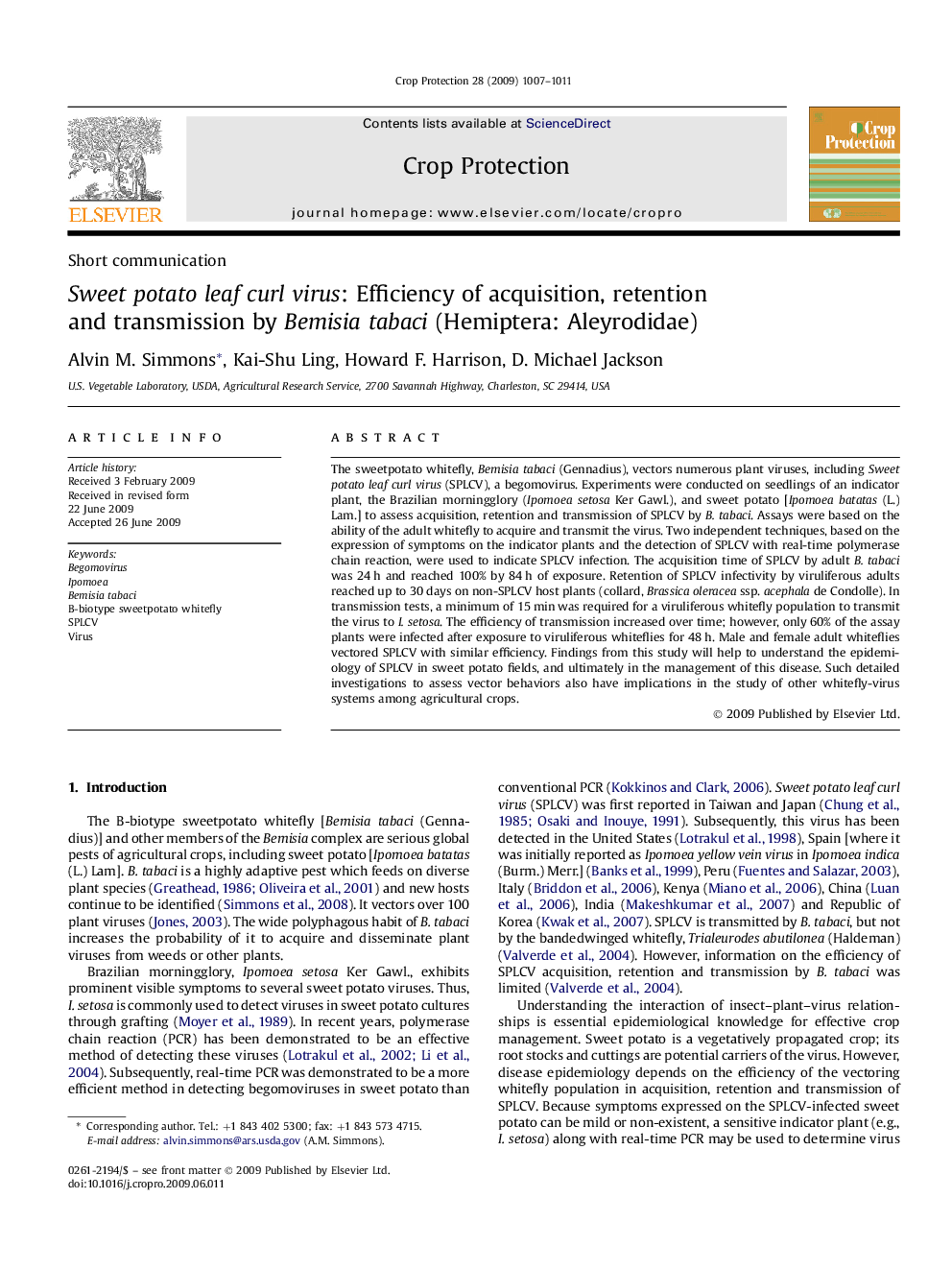| Article ID | Journal | Published Year | Pages | File Type |
|---|---|---|---|---|
| 4507352 | Crop Protection | 2009 | 5 Pages |
The sweetpotato whitefly, Bemisia tabaci (Gennadius), vectors numerous plant viruses, including Sweet potato leaf curl virus (SPLCV), a begomovirus. Experiments were conducted on seedlings of an indicator plant, the Brazilian morningglory (Ipomoea setosa Ker Gawl.), and sweet potato [Ipomoea batatas (L.) Lam.] to assess acquisition, retention and transmission of SPLCV by B. tabaci. Assays were based on the ability of the adult whitefly to acquire and transmit the virus. Two independent techniques, based on the expression of symptoms on the indicator plants and the detection of SPLCV with real-time polymerase chain reaction, were used to indicate SPLCV infection. The acquisition time of SPLCV by adult B. tabaci was 24 h and reached 100% by 84 h of exposure. Retention of SPLCV infectivity by viruliferous adults reached up to 30 days on non-SPLCV host plants (collard, Brassica oleracea ssp. acephala de Condolle). In transmission tests, a minimum of 15 min was required for a viruliferous whitefly population to transmit the virus to I. setosa. The efficiency of transmission increased over time; however, only 60% of the assay plants were infected after exposure to viruliferous whiteflies for 48 h. Male and female adult whiteflies vectored SPLCV with similar efficiency. Findings from this study will help to understand the epidemiology of SPLCV in sweet potato fields, and ultimately in the management of this disease. Such detailed investigations to assess vector behaviors also have implications in the study of other whitefly-virus systems among agricultural crops.
